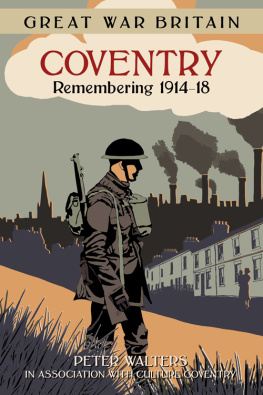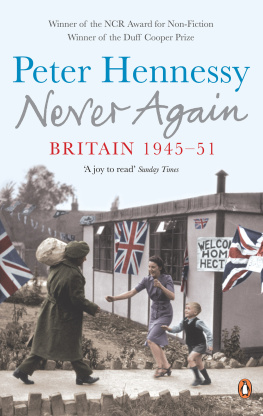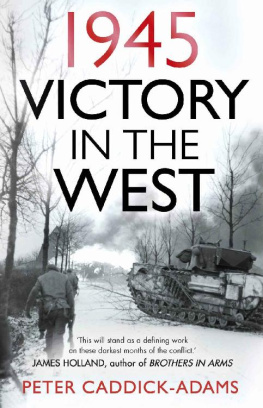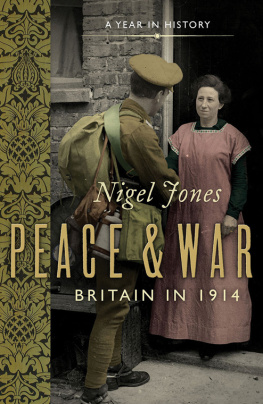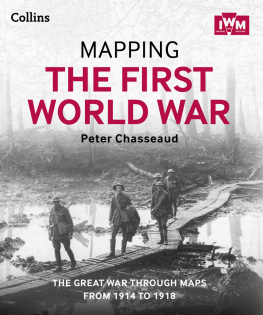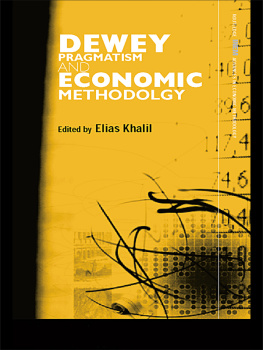WAR AND PROGRESS
BRITAIN
19141945
Longman Economic and Social History of Britain
General Editor: J.V. Beckett
Professor of English Regional History, University of Nottingham
This new seven-volume series will become a standard recommendation for students and other readers in search of an authoritative but readable introduction to the economic and social history of Britain from the Norman Conquest to the present day.
Distinctive features will be the commitment to a genuinely British approach, especially from the Union onwards; the openness to new ideas and new approaches; the effective use of instances and examples to animate theory; and a concern with both regional unity and regional diversity, to highlight the development of a national economy and a national consciousness.
The first volume to be published is:
SCOTLAND BEFORE THE INDUSTRIAL REVOLUTION
cl050c1750
IAN D. WHYTE
WAR AND PROGRESS
Britain 19141945
PETER DEWEY
First published 1997 by Adisson Wesley Longman
Published 2014 by Routledge
2 Park Square, Milton Park, Abingdon, Oxon OX14 4RN
711 Third Avenue, New York, NY 10017, USA
Routledge is an imprint of the Taylor & Francis Group, an informa business
Copyright 1997, Taylor & Francis.
The right of [authors name] to be identified as author of this Work has been asserted by him/her in accordance with the Copyright, Designs and Patents Act 1988.
All rights reserved. No part of this book may be reprinted or reproduced or utilised in any form or by any electronic, mechanical, or other means, now known or hereafter invented, including photocopying and recording, or in any information storage or retrieval system, without permission in writing from the publishers.
Notices
Knowledge and best practice in this field are constantly changing. As new research and experience broaden our understanding, changes in research methods, professional practices, or medical treatment may become necessary.
Practitioners and researchers must always rely on their own experience and knowledge in evaluating and using any information, methods, compounds, or experiments described herein. In using such information or methods they should be mindful of their own safety and the safety of others, including parties for whom they have a professional responsibility.
To the fullest extent of the law, neither the Publisher nor the authors, contributors, or editors, assume any liability for any injury and/or damage to persons or property as a matter of products liability, negligence or otherwise, or from any use or operation of any methods, products, instructions, or ideas contained in the material herein.
ISBN 13: 978-0-582-04586-6 (pbk)
British Library Cataloguing-in-Publication Data
A catalogue record for this book is available from the British Library
Library of Congress Cataloging-in-Publication Data
Dewey, Peter, 1944
War and progress : Britain, 19141945 / Peter Dewey,
p. cm. (Longman economic and social history of Britain)
Includes bibliographical references (p. ) and index.
ISBN 0-582-04587-8 . ISBN 0-582-04586-X (pbk.)
1. Great BritainHistoryGeorge V, 1910-1936. 2. Great BritainHistoryGeorge VI, 19361952. 3. Great BritainEconomic conditions20th century. 4. Great BritainSocial conditions20th century. 5. World War, 1914-1918Great Britain. 6. World War, 19391945Great Britain. I. Title. II. Series.
DA576.D46 1996
CONTENTS
CURRENCY
1 penny (1d.) = 0.42p
12 pennies = 1 shilling = 5p
1 shilling (1s. or 1/) = 5p
20 shillings = 1.00 = 100p
WEIGHTS
1 ounce (oz) = 28.3 grams (g)
16 ounces = 1 pound
1 pound (lb) = 453 grams
2,240 pounds = 1 ton = 1,016 kilograms
The greatest debt owed by an author is to his family, and in particular to his spouse. Without the interest and support of Hilary, this book might not have seen the light of day. As it is, she has put up with my continuous commentary on the progress of this tome over five years, and deserves medals for sheer endurance far beyond the call of duty. She also suggested War and Progress as a title. On occasion I have also imposed on the patience of my son Nicholas and my daughter Emma, to whom are due my apologies and thanks for their forbearance and willingness to discuss historical topics raised in the course of this work.
Professionally, my thanks are due to the History Department at Royal Holloway, University of London, which provides an environment congenial to, and supportive of, research and writing, and to the libraries which I have used, chiefly those of Royal Holloway (especially its excellent inter-library loan service) and of the University of Reading. I have had nothing but the highest professional expertise and unfailing courtesy from these institutions.
I should like to thank Mrs Sue Macgregor, an undergraduate in the History Department at Royal Holloway, for her computer expertise in converting the Appendix data into graphical form.
Finally, I should like to thank the editor of this series, Professor John Beckett, and Addison Wesley Longman for their expert encouragement, and for allowing me to get on with the book without nagging, in spite of it being distinctly overdue.
The publishers would like to thank the following for granting permission to reproduce copyright material: Blackwell Publishers for is reprinted by permission of Kluwer Academic Publishers.
__________
__________________________
______________
T he economy and society of Great Britain are of unique importance in world history. This is because Britain was the first country to experience the Industrial Revolution. This process, which began in the late eighteenth century, and is still going on, consists of the application of more modern and scientific techniques to the economy, so that the labour of human beings becomes more productive, and the efficiency of the economy rises. In the process, economic activity and human settlement change. Men and women now work increasingly in an environment dominated by the machine and the factory, and now live in towns of ever-increasing size. In the process, agriculture and rural life become much less important.
In Britain, these continuing changes had produced by the early twentieth century an economy and society of great complexity. Some idea of the impact of these changes on the regions of the country may be had by considering what people did for a living on the eve of the First World War. This information comes from the decennial population census, conducted in 1911. Of the total British employed population of 18.3 million, the largest employment was in manufacturing, which (together with construction) employed 50 per cent of the total employed population (male and female) in 1911. The next largest was the service sector, which (including transport) employed 35 per cent. These were by far the largest categories of employment. The others were agriculture (8 per cent) and mining (6 per cent). These occupations varied considerably in importance from region to region. The English west midlands was the most reliant on manufacturing, with 56 per cent of its population thus employed, and north Scotland (with 30 per cent) the least. South Wales was the most reliant on mining (32 per cent), and the south-east of England (0.5 per cent) the least. Textiles accounted for almost one-quarter of employment in the northern regions of Lancashire/Cheshire and the West Riding of Yorkshire. Agriculture was of greatest importance in the eastern counties of England, north Wales and north Scotland, where it accounted for about one-quarter of the employed population, and of least importance in the Lancashire/Cheshire region (only 3.0 per cent) (see Map 1).


